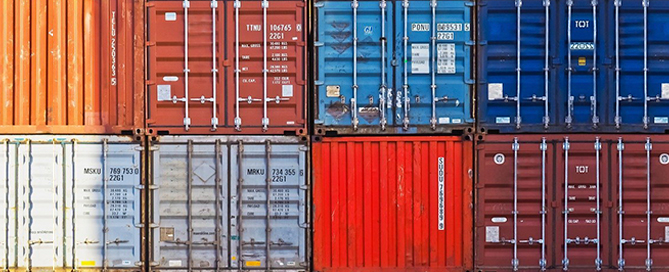There are multiple and diverse ways in which a company can enhance its position in a certain market. For example, it is common that companies, especially those whose products are widely known or those who enjoy a consolidated position in a certain sector, dedicate considerable effort to implementing an efficient distribution system. This type of company, due to their capacity to impose commercial conditions on other economic players, have considerable room for manoeuvre when setting up their distribution network. However, community legislation with regard to competition rules prohibit companies from benefitting from a dominant position in a particular sector from imposing unequal commercial conditions for the purpose of expulsing their competitors from the market (article 102 of the Treaty on the Functioning of the European Union).
This is the case analysed by the Court of Justice of the European Union (hereinafter referred to as the “CJEU”) in a recent judgment dated 19th January 2023 regarding the Unilever case (case number C-680/20). The most relevant facts of the matter are as follows:
- The Italian company Unilever Italia Mkt. Operations Srl (hereinafter referred to as “Unilever”) was engaged, as far as this case is concerned, in the marketing of ice cream in Italy, for which it makes use of a network of more than 150 distributors. Furthermore, Unilever, benefitted from a dominant position in this market.
- Following a complaint from a competitor, the Autorità Garante della Concorrenza e del Mercato (Competition and Markets Authority, Italy – hereinafter, the “CMA”) initiated a sanction procedure against Unilever, which, on 31st October 2017, resulted in a fine for the amount of sixty million Euros being imposed on the company for abuse of a dominant position, pursuant to article 102 of TFEU.
- The CMA deemed that Unilever had carried out an exclusion strategy likely to hinder the growth of its competitors, preventing the latter from pursuing real competition based on the merits of their products. Specifically, Unilever instructed its distributors to impose exclusivity clauses on the operators of points of sale, obliging them to supply them with ice creams exclusively through Unilever. In turn, the points of sale benefitted from discounts and commissions.
- The CMA did not evaluate the financial studies provided to them by Unilever according to which the latter’s commercial practices did not produce the effects of expulsion on its competitors, as it understood that given that Unilever is a company with a dominant position in the market, the mere fact of using exclusivity clauses constituted an abuse of a dominant position.
- For the CMA it was irrelevant that the abusive practices had not been materially carried out by Unilever, but rather that it should be understood that Unilever and its distributors formed a sole economic entity, due to the high level of interference which Unilever exercised in its distributors commercial policy.
- Unilever contested the decision and the case went to the Italian State Council, which referred the following questions to the CJEU for a preliminary ruling:
(i) Is the fact that there is a certain level of interference in the commercial decisions of other companies sufficient for these companies to be considered the same economic unit? Or on the other hand, is it necessary that a “hierarchical” relationship exists between both companies?
(ii) Upon examination as to whether the abuse of a dominant position has been committed pursuant to exclusivity clauses, is the national Competition Authority obliged to verify whether such clauses should have the effect of excluding equally efficient competitors from the market?
With regard to the first preliminary ruling, the CJEU understands that the actions carried out by distributors forming part of a distribution network for the products or services of a manufacturer with a dominant market position must be attributed to the manufacturer if it can be demonstrated that the distributors did not act independently, and that said actions form a part of a marketing strategy unilaterally decided by such manufacturer. Thus, in a case such as that being tried, it must be considered that the Unilever distributors simply acted as an instrument for the geographical offshoots of the marketing policy of the company, through which expulsion practices emerge. This consequence, for the CJEU does not require a “hierarchical” link to exist in order to impute the acts of its distributors to a company in a dominant position.
In so far as the second preliminary ruling is concerned, the CJEU acknowledges that, according to its own case law, clauses pursuant to which the parties undertake to be supplied by a company in a dominant position for all or a substantial part of their needs, constitute, per se, an act of exploitation of a dominant position. The same happens with loyalty discounts granted by the dominant company.
However, the CJEU recalls that this line of case law has been qualified through the “Intel/Comisión” judgment (case C413/14). In this case, the CJEU upheld that the effect of the expulsion of competitors derived from a system of discounts which was disadvantageous from a competition point of view may be outweighed by the benefits of said practices for the consumers, and therefore, such practice may be justified.
Thus, the CJEU argues that, given that both discount practices as well as exclusivity clauses may be justified in some cases, the reasoning set forth by the court in the “Intel/Comisión” case is applicable by analogy to the case at hand. In other words, for the CJEU, exclusivity clauses do not in themselves produce the effect of excluding competitors, but that this must be proven in view of the specific circumstances of each case.
Joan Lluís Rubio
Vilá Abogados
For more information, please contact:
27th January 2023



